You can save money on eligible health care and/or dependent care expenses by paying for them with tax-advantaged accounts.
OVERVIEW
East West Bank offers you the following tax-advantaged accounts and encourages you to take full advantage of their money-saving potential.
You can enroll in them on the UKG as a new hire, during Open Enrollment, or if you have a Life Event.
Please Note:
You must enroll in these accounts each Open Enrollment if you want to contribute the next year, even if you already participate.
Health Savings Account (HSA)
Administered by: HealthEquity
Available only to associates who enroll in the Blue Shield Savings Plus PPO.
Health Care Flexible Spending Account (HCFSA)
Administered by: HealthEquity
Available to associates who enroll in Blue Shield PPO, Blue Shield Savings Plus PPO (without an HSA and LPFSA), Blue Shield EPO, any of the HMO plans, or who do not elect medical coverage through East West Bank.
Limited Purpose Flexible Spending Account (LPFSA)
Administered by: HealthEquity
Available to associates who enroll in the Blue Shield Savings Plus PPO and enrolled with a Health Savings Account.
Dependent Care Flexible Spending Account (FSA)
Administered by: HealthEquity
Available to all associates.

*Contributions are not subject to federal income tax. However, HSA contributions are currently subject to state income tax in CA and NJ. Consult with your tax advisor to understand the potential tax implications of enrolling in an HSA and/or FSAs.

Tax-free money

Money goes in tax-free* and comes out tax-free when it’s used for eligible expenses.

Convenient payroll deductions

Contribute to your accounts easily and effortlessly.

Helpful budgeting tool

Plan for upcoming expenses by setting aside money each paycheck.
How much could you save?
Here’s an example. Let’s say Tom decides to set aside $2,000 in an HSA or FSA for the year. Normally, on that money, he’d pay $480 in federal income tax, $100 in state income tax, and $153 in payroll tax. So, by contributing that $2,000 to his HSA or FSA, he’ll get $733 in tax savings for the year.
This hypothetical illustration is for educational purposes only. Dollar amounts or savings will vary depending on income, state and city tax rules, and other factors. Please consult a tax, legal, or financial advisor about your own personal situation.
*Contributions are not subject to federal income tax. However, HSA contributions are currently subject to state income tax in CA and NJ. Consult with your tax advisor to understand the potential tax implications of enrolling in an HSA and/or FSAs.
Health Savings Account
With the Blue Shield Savings Plus PPO, you’re eligible to open and contribute money to a Health Savings Account (HSA) through HealthEquity. The HSA is a tax-free savings account that you own. You can use it to pay for eligible health expenses anytime, even in retirement.
Get unbeatable advantages with an HSA
The HSA has a triple-tax advantage that trumps even a 401(k) or Roth IRA.
*Money in an HSA can be withdrawn tax-free as long as it is used to pay for qualified health-related expenses. If money is used for ineligible expenses, you will pay ordinary income tax on the amount withdrawn, plus a 20% penalty tax if you withdraw the money before age 65.

Put money in tax-free.
You contribute to your HSA through pretax payroll deductions. You can change your contribution amount anytime within the IRS annual maximum.
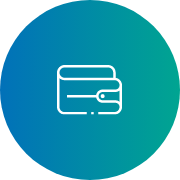
Pay for care tax-free.
Pay for eligible medical, dental, and vision expenses for you and your family with tax-free money. For more information about eligible expenses, see IRS Publication 502.
You can either use your HSA debit card (provided sufficient funds are in your account) or make payments later through the HealthEquity website.
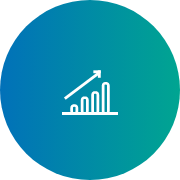
Grow money for the future tax-free.
All the money in your HSA is yours to keep, year after year.
You can build up savings through tax-free interest and even invest your money once it reaches a minimum balance ($1,000), which gives you the potential for tax-free earnings growth and a way to plan ahead.

Manage your account.
Use the HealthEquity website or mobile app to:
• Check your balance.
• Pay bills.
• Reimburse yourself for payments you made without HSA funds.
• Manage your HSA investments.
Contribution limits
Keep in mind, the maximum amount you can contribute to your HSA is determined by annual limits that the IRS sets. In 2025, the total contribution limits are:
• $4,300 if you have associate-only medical plan coverage.
• $8,550 if you cover dependents.
Add $1,000 to these limits if you’re age 55 or older.
Who’s eligible for an HSA?
In order to establish and contribute to an HSA, you:
• Must be at least 18 years old.
• Must be enrolled in the Blue Shield Savings Plus PPO.
• Cannot be enrolled in any other medical coverage, including a spouse’s plan or Medicare.
• Cannot be claimed as a dependent on someone else’s tax return.
You should review IRS rules for making HSA contributions if you will turn age 65 during the year. For more information, see IRS Publication 969.
Get unbeatable advantages with an HSA
To contribute to an HSA, you must enroll in the Blue Shield Savings Plus PPO. You will elect your HSA contribution amount during enrollment. You can then manage your account through the HealthEquity website.
As you start using your account, keep in mind that you can only spend money that has actually been deposited into your account — your entire annual contribution amount is not available to you from the beginning of the plan year. Your HSA balance will grow as deposits are made from each paycheck.
Health Care FSA
Using a Health Care FSA is like getting a discount on everyday health expenses because you’re paying with tax-free money. The Health Care FSA is administered by HealthEquity.
Use your money!
With FSA money, you “use it or lose it.” If you have a balance left in your FSA as plan year-end approaches, try to spend as much of it as you can on eligible expenses. Request reimbursement or manage your account on the HealthEquity website.
Need help estimating your FSA tax savings? Use the HealthEquity FSA Savings Calculator.
A Health Care FSA is available to associates who enroll in the Blue Shield Savings Plus PPO (Not Available if You Contribute to an HSA), Blue Shield PPO, or any of the HMO plans, or who do not elect medical coverage. You can contribute up to $3,300 for the year through pretax payroll deductions to help cover eligible medical, dental, and vision expenses.
For more information about eligible expenses, see IRS Publication 502.
How the Health Care FSA works
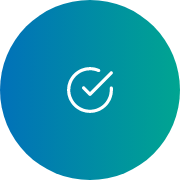
Choose
You must enroll each plan year to participate. You can only change the contribution amount during the plan year if you experience a Life Event, so estimate carefully.

Contribute
Your annual contribution will be divided into equal payroll deductions, but the entire amount is available to you from the beginning of the plan year.

Spend
Spend your money by using your FSA debit card, or log in to the HealthEquity website to request reimbursement for payments you’ve made.
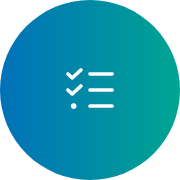
Use It Up
Unused money does not carry over at the end of each plan year — use it or lose it! You have until August 15 each plan year to incur expenses against the previous plan year’s Health Care FSA. You must submit claims for expenses incurred during the previous plan year by August 31.
Limited
Purpose FSA
Using a Limited Purpose FSA is like getting a discount on everyday dental and vision expenses because you’re paying with tax-free money. The Limited Purpose FSA is administered by HealthEquity
Use your money!
With LPFSA money, you “use it or lose it.” If you have a balance left in your LPFSA as plan year-end approaches, try to spend as much of it as you can on eligible expenses. Request reimbursement or manage your account on the HealthEquity website.
Need help estimating your FSA tax savings? Use the HealthEquity FSA Savings Calculator.
A Limited Purpose Flexible Spending Account is available to associates who enroll in the Blue Shield Savings Plus PPO and enrolled in an HSA. Use your LPFSA for dental and vision expenses and keep your HSA growing tax-free for other future healthcare needs.
You can contribute up to $3,300 for the year through pretax payroll deductions to help cover eligible dental and vision expenses only. You are allowed to use your LPFSA funds to reimburse for eligible medical and prescription expenses once the documentation to verify that your annual medical deductible has been met is submitted to HealthEquity.
How the Limited Purpose FSA works

Choose
You must enroll each plan year to participate. You can only change the contribution amount during the plan year if you experience a Life Event, so estimate carefully.

Contribute
Your annual contribution will be divided into equal payroll deductions, but the entire amount is available to you from the beginning of the plan year.

Spend
You are allowed to use your LPFSA funds to reimburse eligible dental, vision, and medical expenses (once you have provided documentation to prove that you have met your annual medical plan deductible).

Use It Up
Unused money does not carry over at the end of each plan year — use it or lose it! You have until August 15 each plan year to incur expenses against the previous plan year’s Limited Purpose FSA. You must submit claims for expenses incurred during the previous plan year by August 31.
Dependent Care FSA
Using a Dependent Care FSA is like getting a discount on everyday dependent care expenses because you’re paying with tax-free money. HealthEquity administers the Dependent Care FSA.
A Dependent Care FSA is available to all associates. You can contribute up to $5,000 per family (or $2,500 each if you are married and file separate tax return for the plan year) through pretax payroll deductions to help cover your eligible dependent care expenses, including child care for children up to age 13 and care for dependent elders. For more information about eligible expenses, see IRS Publication 503.
How the Dependent Care FSA works

Choose
You must enroll each plan year to participate. You can only change the contribution amount during the plan year if you experience a Life Event, so estimate carefully.

Contribute
Your annual contribution will be divided into equal deductions from each paycheck. You can only use money that has been deposited into your account.

Use It Up
Unused money does not carry over at the end of each plan year — use it or lose it! You have until August 15 each plan year to incur expenses against the previous plan year’s Dependent Care FSA. You must submit claims for expenses incurred during the previous plan year by August 31.
Commuter Spending Account
To ease the cost of your commute to work, the East West Bank Commuter Spending Account lets you set aside pretax dollars from your paycheck to help pay for monthly parking or transit costs. It’s easy and flexible.
*Commuter benefits are limited to expenses for mass transit and qualified parking, and don’t cover tolls, gas, or reimburse for taxis or ride-hailing services like Uber and Lyft.
How it works

Contribute
Decide the amount you want to contribute on the HealthEquity website. The money is deducted from your paycheck before taxes are taken out.
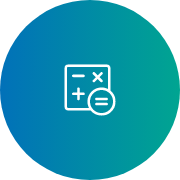
How much
You can elect to contribute up to the monthly IRS limit of $325 for transit and $325 for parking.

Deadline
Make changes by the 10th of each month for the new deduction to be effective the following month.
Compare the Accounts
| HSA | Health Care FSA | Limited Purpose Health Care FSA | Dependent Care FSA | |
|---|---|---|---|---|
| Available with … | Blue Shield Savings Plus PPO | Your employment at East West Bank even if you waive medical coverage. Not available if you contribute to an HSA | Blue Shield Savings Plus PPO and enrolled in an HSA | Your employment at East West Bank |
| Receive company contribution? | Yes. The Bank will contribute: $360 for individual coverage $720 for family coverage |
No | No | No |
| What is the max. I can contribute for 2025-2026 Plan Year? | The 2025 IRS Maximum is $4,300 for individual coverage and $8,550 for family coverage. Since the Bank is providing a contribution, associates may contribute up to $3,940 for individual coverage and $7,830 for family coverage. Associates age 55+ can increase these limits by $1,000. |
$3,300 | $3,300 | $5,000 for families ($2,500 if married and you and your spouse file separate tax returns) |
| Change your contribution amount anytime? | Yes | No | No | No |
| Access your entire annual contribution amount as needed? | No | Yes | Yes | No |
| Access only funds that have been deposited? | Yes. (The HSA contribution from the Bank will occur every pay period.) | No | No | Yes |
| Use account money for… | All eligible health care expenses | All eligible health care expenses | Qualified dental and vision expenses not covered by insurance. No “double dipping” allowed. You cannot use funds from both an HSA and a limited-purpose health care FSA to cover the same eligible expense. | Eligible dependent care expenses, including child care for children up to age 13 and care for dependent elders |
| “Use it or lose it” at year-end? | No | Yes | Yes | Yes |
| What happens if there’s money left at the end of the plan year? | HSA funds roll over year to year if you don’t spend them. | You have until August 15 each plan year to incur expenses against the previous plan year’s health care FSA. You must submit claims for expenses incurred during the previous plan year by August 31. | You have until August 15 each plan year to incur expenses against the previous plan year’s health care FSA. You must submit claims for expenses incurred during the previous plan year by August 31. | You have until August 15 each plan year to incur expenses against the previous plan year’s health care FSA. You must submit claims for expenses incurred during the previous plan year by August 31. |
| Money is always yours to keep? | Yes | No | No | No |
| What happens if I leave the company or retire? | You can take your HSA funds with you even if you change jobs, switch health care plans or leave the workforce. There is no “use it or lose it” risk. | After leaving the Bank or retiring, you have until August 31 of the plan year to submit claims incurred on/before the date you left the Bank | After leaving the Bank or retiring, you have until August 31 of the plan year to submit claims incurred on/before the date you left the Bank | After leaving the Bank or retiring, you have until August 31 of the plan year to submit claims incurred on/before the date you left the Bank |
Last updated date: 4/30/2024
